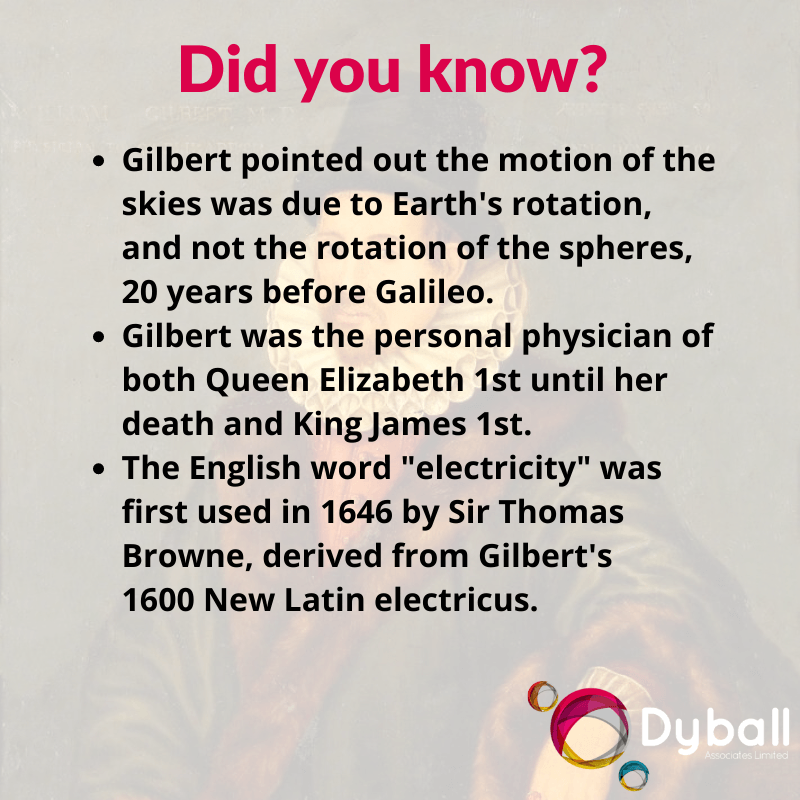Pioneers of Power – William Gilbert the ‘father of electrical engineering’
For a long time, electricity was a mystical force, but some brave pioneers took the steps to unravel its mysteries. In this series, we look at some of those pioneering men and women whose experiments and theories created the world we live in today.
In part one we focus on one of Elizabethan England’s most brilliant minds, William Gilbert the man often hailed as the father of electrical engineering.
Born on May 24 1544 into a wealthy family in Colchester, William Gilbert quickly discovered a passion for science and at the age of 14 began studying at St. Johns College at Cambridge University. Whilst there he excelled achieving a bachelor’s, masters and doctoral degrees before finishing his studies in 1569.
After his time at university, Gilbert moved to London where he began practising as a physician. Whilst running a successful medical practise in the day he would use his spare time to experiment with magnetism and electricity. Very little was known about either before he began his research.
Magnetic compasses used for naval navigation had been in use for some time, but no one understood how or why they worked. Gilbert investigated and came up with several theories with his biggest being around the magnetic properties of the Earth itself.
The father of Electricity
In his book published in 1600 under the title De Magnete, Gilbert announced that following his many experiments that the Earth itself was a giant magnet, effectively debunking the traditional cosmologists' belief that the Earth was fixed at the centre of the universe. As well as that ground-breaking theory he also included accounts of his experiments involving polarity, magnetostatics and how temperature influenced magnetism.
The book became the go-to resource for other scientists researching electricity and magnetism and it is believed that the book influenced other great minds of the age including Galileo and Johannes Kepler.
The success of the book made Gilbert famous across Europe and as a result, he was elected to be President of the Royal College of Physicians. In 1601, he was made the personal physician of Queen Elizabeth.
Sadly, for Gilbert, he didn’t get to enjoy his fame for long, as in 1603 he became deathly sick (most likely a result of bubonic plague) and died in November of that year.
After his passing, one of his relatives collected several of his unpublished writings and released the ‘A New Philosophy of Our Sublunar World’ in 1651. Inside was Gilbert’s theory that the Earth was continually rotating on its axis.
Years after his death a unit of magnetomotive force also called magnetic potential was named the Gilbert in his honour.
Gilbert is cited as the father of electricity for his recording of knowledge from the past, his experimentation and for creating terminology that is still in use 400 years after his death. Both the terms of electricity and electrical force are credited to him as are the concepts of electrical attraction and the magnetic poles.





